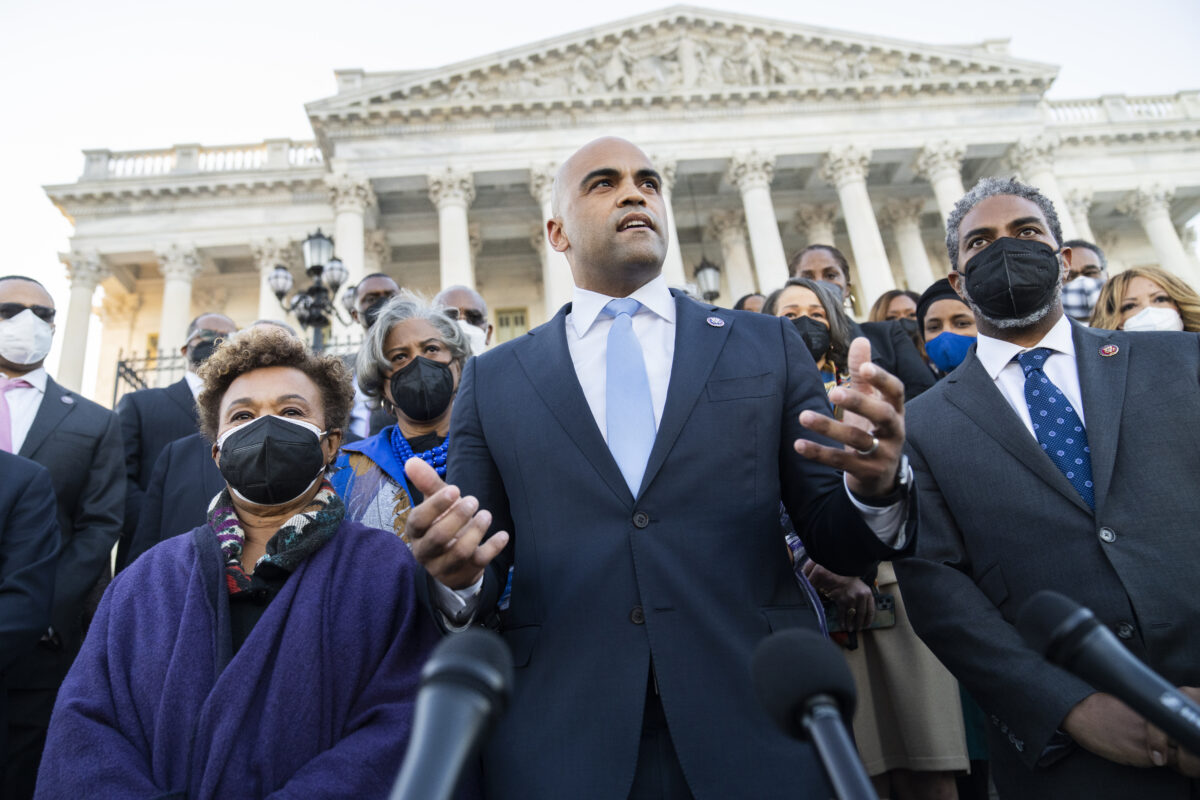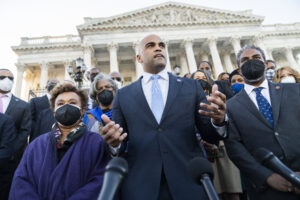
The talk of reparations has some California residents upset.
A new poll from the University of California, Berkeley found that a majority of residents oppose Black residents getting any type of reparations, NBC News reported. After the state Assembly recommended Black residents receive reparations, including cash payments, for the harm slavery caused, the poll found that 59% of participants rejected the idea of cash payments to Black descendants, 76% of Black respondents were in favor, and 66% of white voters opposed the idea.
The California Congressional Black Caucus is preparing a statewide campaign to educate those who may misunderstand why reparations are so important. Reparation Task Force member, Reginald Jones-Sawyer, said the poll results show that residents have no idea how deep California’s slavery involvement goes, or the other forms of racism Black families have historicallyd faced.
“Polls can be skewed because usually enough information isn’t given to the people so that they don’t have a full understanding of what’s going on,” Jones-Sawyer said.
To help the public out, the Caucus will start the fundraising campaign, hiring a firm to provide “clear and concise and direct messaging,” about the 1,100-page report.
“Obviously most people didn’t read the preliminary or final report by the task force,” Jones-Sawyer continued. “People now are trying to debunk those findings.”
The task force has broken down how much should be disbursed by category, according to The Los Angeles Times. For health disparities, the recommended figure is $13,619, representing for each year of residency in California. Eligible descendants could receive $2,352 for mass incarceration and over-policing, catering to each year of the war on drugs era from 1971 to 2020. For housing discrimination, the total came to $3,378 for each year between 1933 and 1977 that a descendant lived in California.
When the poll asked why voters were apprehensive about the cash payments, 60% claimed “It’s unfair to ask today’s taxpayers to pay for wrongs committed in the past” and 53% said, “It’s not fair to single out one group for reparations when other racial and religious groups have been wronged in the past.”
Of those who opposed the plan, close to two-thirds were white voters, compared to 6 in 10 who identified as Latino and Asian voters. Director of the poll, Mark DiCamillo, pointed out that the cash payments are what voters mostly opposed. “There could be other solutions that could be much more warmly received,” DiCamillo said.
In May 2023, the task force also recommended the state issue a formal apology for slavery, as well as for laws and actions that actively discriminated against Black residents, like interracial marriage prohibition, Confederacy-based monuments, and open segregation and discrimination in the arts industry.
RELATED CONTENT: Former Congressional Black Caucus Workers Start Political Action Committee





